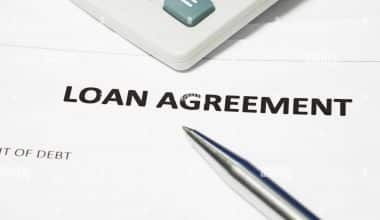You may be asking how to find current commercial loan rates for real estate as a business or property owner. Access to current CRE rates is critical for every business borrowing choice, particularly in a rising rate environment. In this environment, CRE loan interest rates are gradually rising, which may affect how much it costs firms to borrow money. This article will teach you all you need to find current commercial loan rates, including finding 10-year commercial loan rates, using a calculator.
What Is a Commercial Loan Rate?
A commercial loan rate is the interest rate charged on a commercial loan issued to a business by a financial institution. Many factors can affect the rate. The interest rate on a commercial loan can be fixed or variable. Commercial loan rates are frequently higher than personal or mortgage rates, reflecting the added risk of funding firms.
What Is a Commercial Loan Property?
Any non-residential property used for business operations is considered commercial loan property, also known as commercial real estate. Office buildings, retail shops, industrial warehouses, hotels, and multi-unit housing complexes are examples.
Businesses frequently buy commercial loan properties from real estate investors or developers with the intention of generating income by leasing the property to tenants. Commercial loan properties can be successful investments, but they are riskier than residential loans.
This is due to the fact that changes in the economy or fluctuations in the local real estate market can have an impact on the property’s value and ability to generate rental revenue.
Different Interest Rates for Different Loans
Commercial real estate rates vary by asset class, geographic region, tenant mix, property type, leverage, debt service coverage, sponsorship, and hundreds of other factors that are carefully analyzed in each loan’s underwriting. Commercial Real Estate Loans specializes in property financial underwriting and analysis. Let’s have a look at them:
#1. SBA 504 Commercial Real Estate Loan Rates
Interest Rates: 3.5% – 6% (on the CDC portion of the loan)
With rates as low as 3.5%, SBA 504 loans are the most economical commercial real estate financing. Commercial mortgage rates for this product are favorable because the US Small Business Administration (SBA) provides a portion of the loan through local intermediaries known as certified development corporations (CDCs). Borrowers can use SBA 504 loans to finance the purchase, improvement, or rehabilitation of real estate.
#2. SBA 7(a) Commercial Real Estate Loan Rates
Interest Rates: 7% – 9.5%
SBA 7(a) loans, the most common of the SBA lending programs, can be used for practically any business purpose, including the purchase or repair of commercial property.
These feature low-interest rates as well, although the terms aren’t as good as 504 loans. Interest rates for 7(a) loans are now between 7% and 9.5%, and they can be fixed-rate or variable (and if variable, your monthly payments may grow over time). SBA 7(a) lenders often require a 20% down payment and maturities of up to 25 years.
#3. Bank Commercial Real Estate Loan Rates
Interest Rates: Start at 3.75%
Bank loans are another alternative for business owners looking for low-interest commercial real estate loans. SBA loans are fantastic, but banks must follow a slew of rules and regulations before they can approve and support this sort of funding. Smaller community banks, in particular, may be unfamiliar with the process, but they may be ready to provide you with a typical commercial real estate loan in its place.
#4. Hard Money Commercial Real Estate Loan Rates
Interest Rates: 10% – 20%
Commercial real estate hard money loans are provided by non-bank private lenders. Individuals, online lenders, and other private lenders can all be hard money lenders. Hard money loans are frequently used by small business owners who wish to buy or remodel real estate but do not qualify for bank or SBA loans.
Hard money lenders not only have lower qualification standards, but they also work faster than banks. In most cases, you will receive your funds within one to two weeks, as opposed to several months with a bank. The tradeoff, though, is higher interest rates, which can range from 10% to 20%.
How Can You Find the Current Commercial Loan Rate?
When looking at current commercial loan rates, it is critical to compare rates from multiple lenders and evaluate elements such as fees, repayment terms, and collateral requirements. You can use this to find the loan that best meets your company’s requirements and financial limits. There are various methods for determining the current commercial loan rate:
#1. Check with your bank or credit union
If you already have a relationship with a bank or credit union, you may see what rates they are currently offering for commercial loans. To do so, contact a loan officer or go to their website.
#2. Online search tools
Using numerous web search engines, you can compare business loan rates from multiple lenders. You often need to provide basic information about your organization and loan requirements to obtain personalized rate estimations from these sites. Finance Lobby is the best online platform for financing commercial real estate.
#3. Attend industry events
Attending industry events such as conferences or trade fairs allows you to meet lenders and learn about current lending rates and trends. This might be a great approach to learn about the rates available in the market.
#4. Engage a commercial loan broker
Commercial loan brokers can help you find the best loan rates and terms for your company. They have relationships with a variety of lenders and can help you with the application process. However, keep in mind that brokers frequently charge a fee for their services.
How Commercial Real Estate Loan Rates Work
Commercial real estate loans can assist you in financing the purchase, improvement, or upgrading of practically any form of commercial property, from a retail store to an office to a warehouse, and anything in between. There are a few things you should know about commercial mortgage rates to ensure you obtain the best offer. Here’s what you should know.
#1. Fixed vs. Variable Commercial Real Estate Loan Rates
Commercial real estate loan rates can be fixed or variable over the life of the loan. Variable rates fluctuate in response to market rates. A variable interest rate may also reset on a regular basis (e.g., every three or five years, or even every month) according to a schedule provided by the lender in your loan agreement.
Fixed rates provide greater security, but if you are a less-qualified borrower, the lender may only offer you a variable rate. It is also dependent on the lender and the terms of your loan.
#2. Loan-to-Value Ratio
Loan-to-value (LTV) is a ratio that compares the loan amount to the property’s worth. For example, if a lender offers up to 80% LTV, it means they will finance up to $80,000 on a $100,000 property. You must bring the remaining $20,000 to the table as a down payment on your own.
#3. After-Repair Value
When issuing fix and flip loans or funding properties in need of renovation, lenders primarily employ after-repair value (ARV). It refers to the property’s value when the renovation is completed. Some lenders are willing to lend up to 70% of the ARV.
#4. Structure of the Loan
The loan structure is another factor that can influence your commercial real estate loan rate. Your loan may be fully amortizing for the whole term, which means you’ll make a series of payments to pay off your loan, with a smaller portion of each payment going to interest over time. Some lenders, on the other hand, structure commercial real estate loans with a balloon payment.
Factors That Can Affect Commercial Real Estate Loan Rates
The following are the primary elements that influence commercial real estate lending rates:
#1. Personal and Business Credit Score
The creditworthiness of the borrower and their business, like practically all other sorts of small business finance, has a significant impact on your commercial real estate loan rates. As you can imagine, the lower your commercial loan rates will be the higher your credit score.
#2. Type of Property
What business loan rates you qualify for might also be influenced by how you intend to use your commercial real estate loan. Using a commercial real estate loan to buy or repair an existing property is riskier than using a real estate loan to build from the ground up.
#3. Loan Amount and Term Length
Your commercial real estate loan rates will also be affected by the loan size and length. Because these lenders work with riskier applicants, short-term hard money loans typically have higher interest rates. Even if your interest rate is lower, you will pay more in total interest on a long-term loan.
#4. Fees
When you convert the interest rate on your commercial loan to an annual percentage rate (APR), you may notice that the APR is higher than the interest rate. This is because the lender may have charged fees on your commercial real estate loan, which increases the overall cost.
What Are Commercial Real Estate Loan Rates?
Commercial real estate loan rates can range from 3.5% to 20% on average. These interest rates vary depending on the property being financed, the borrower’s creditworthiness, and the type of business lender involved.
Where Can I Get a Commercial Real Estate Loan?
Bank of America offers commercial real estate loans.
What Determines Commercial Interest Rates?
Banks base their loan rates on the federal fund’s target rate. The prime rate is equal to the federal fund’s target rate multiplied by three. When the Federal Reserve acts to raise or lower the federal fund’s target rate, the prime rate changes as well.
What Are Commercial Loan Rates Tied To?
The Federal Funds Rate, which is established by the Federal Reserve, is used to calculate the prime interest rate for commercial property loans. This rate can fluctuate every six weeks or remain constant for years.
Can You Lock a Rate on a Commercial Loan?
Most lenders will lock in the rate once the lender has been engaged and the deposit for the third-party reports has been provided to the lender.
What Factors Must Banks Consider When Approving Commercial Loans?
The following are the elements that banks assess before giving a company loan.
- Credit History.
- Cash Flow.
- Collateral.
- Repayment Capacity.
- Documents.
What Is One Downside of a Rate Lock to the Borrower?
A rate lock may have a disadvantage.If your transaction requires longer time, it may be costly to extend. A rate lock may also prevent you from receiving a cheaper interest rate if rates fall after you receive your loan offer. Some lenders will lock your rate as part of the Loan Estimate process, while others will not.
Does It Cost Money to Lock a Rate?
Rate locks aren’t free, but that doesn’t imply you’ll have to pay a line item for them. Most lenders do not impose a separate fee for rate locks inside a specific time frame; the cost of the lock is frequently baked into the rate you’re provided.
Conclusion
Purchasing commercial real estate is likely to be one of the most significant financial transactions you will make as an entrepreneur. A low commercial mortgage rate can also save you thousands of dollars over the life of your loan.
If you only remember one thing from this guide, make it this: shop around. Only after carefully considering and comparing numerous commercial real estate loan choices can you be certain that you’re obtaining the best rates available.
- Variable Costs: Definition, Examples, Formulas & How to Calculate It
- COMMERCIAL REAL ESTATE LOAN: Overview & Requirements
- FIXED VS VARIABLE COSTS: What’s the Difference?
- Total Cost: Definition, Formula, How to Calculate It & Free Tips
- COMMERCIAL LOANS: Understanding Commercial Loan, Types & Rates






